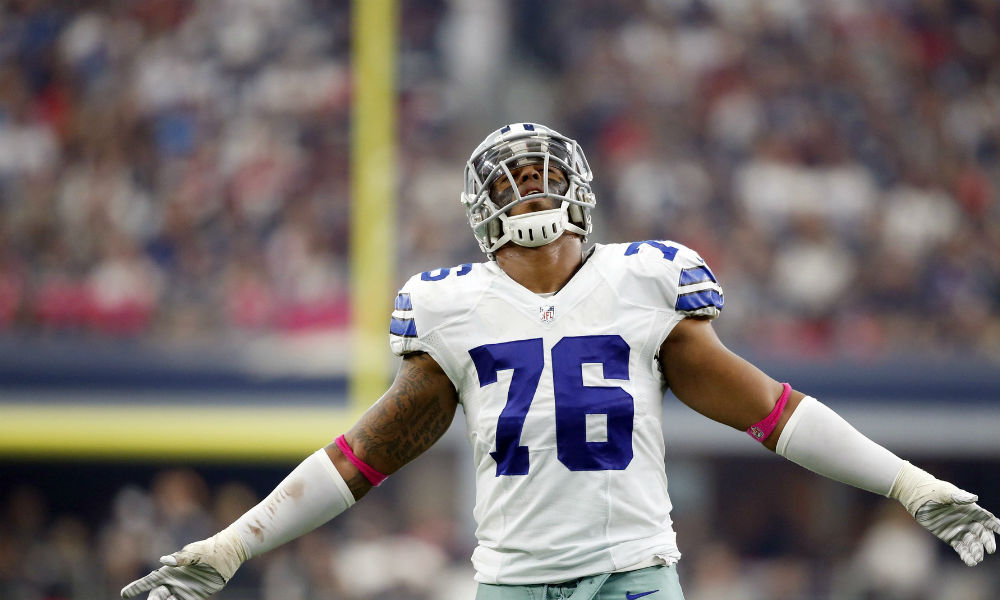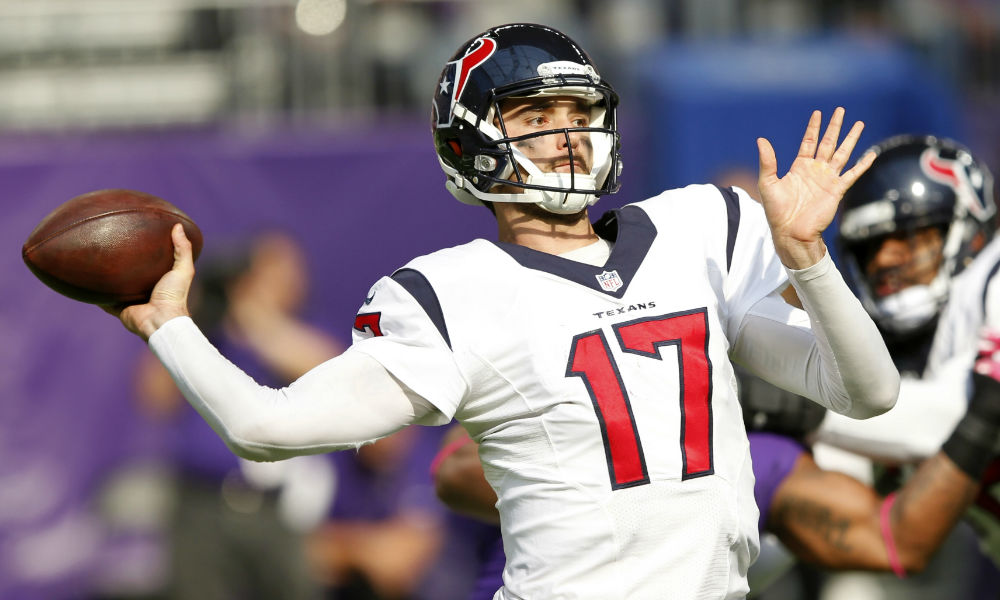News
The NFL’s Franchise Tag Conundrum
Once a tool for owners, the franchise tag is now benefitting players.
The 2015 NFL offseason is off to a fast start with new coaching staffs in place across the league and pre-draft analysis underway. But looming around the corner are some even bigger dates, as free agency approaches at the beginning of next month.
Before then, however, teams will have the opportunity to keep their players from hitting the open market beginning on Monday when the two-week franchise tag window opens.
In theory, nearly every team has a situation where they could use the franchise tag to retain a valuable piece of their team. But in recent years the number of franchise-tagged players has dropped drastically.
The franchise tag was initially put in place when free agency was established as a means of maintaining balance, so that teams wouldn’t necessarily lose their best player the moment he became free after years under his rookie contract.
“Free agency was uncharted waters for us,” former New York Giants General Manager Ernie Accorsi told the New York Times in 2005. “We sat there and watched the superstars in baseball switch teams. I think there was a concern, ‘Are we going to lose our star players like that?'”
It was once the case that if a team had an impact player due to become a free agent, the franchise tag was a near certainty. It seemed to make sense for both sides. The team would retain a star player and the player would be rewarded with a high salary — the average of the top five salaries at their position or a 20 percent raise on his previous year’s salary, whichever was higher.
But in its early days, the franchise tag was seen by players as a jail sentence. Instead of being free to sign a lucrative multi-year contract at the conclusion of their rookie deal, the franchise tag forced them to sign a one-year offer sheet. It was particularly cumbersome for defensive players, who wound up receiving well below their worth in guaranteed money.
The tag also put all of the risk on the player. In the event of an in-season injury, the team was only on the hook for the rest of the money for that season and could then part ways with the player, whose earning potential would decrease post-injury.
So while in theory it seemed the franchise tag would be mutually beneficial, in reality it was merely a means for owners to avoid taking on the risk of a long-term commitment. In the same New York Times article from 2005, writer Karen Crouse described the tag as “a curse disguised as a compliment” and NFL agent Drew Rosenhaus told Crouse he cringed every time one of his players got hit with the tag.
“No one wants to get the franchise tag,” he said. “It was designed to give the teams a way to keep one or two of their most valuable players. The way it’s ended up, it’s actually become counterproductive because the negotiations for the most part have not been effective. There have been a lot of one-year contracts, and it has created acrimony among players and franchises.”
However, as the salary cap began to rise and salaries started to skyrocket across the board, the players have begun getting what they want out of the franchise tag one way or another.
With salaries spiking in the last few years, the average of the five highest salaries at a position has become more lucrative for players. In the last seven years, nearly every position group has seen the franchise player salary rise by more than $4 million.
For example: in 2007, the average of the top-five salaries at the safety position was $4.1 million. By last offseason, that number had more than doubled to $8.4 million. It gets even more lucrative for players at other positions. At wide receiver and cornerback, the difference in just seven years is an increase of $6 million. Due to those big raises, players feel they’re finally getting what they’re worth out of the franchise tag, even if it is on just a one-year deal. But that’s not the only impact the rising cost of the franchise tag is having.
The prohibitive cost of the tag has become a deterrent for owners and instead of levying the tag and being forced to swallow a big number against their cap for one season, they’re rewarding players with long-term contracts featuring large signing bonuses.
These contracts spread out the player’s cap hit more evenly, making it beneficial for the team, and they give the players what they’ve wanted all along, a commitment of guaranteed money that limits their own risk. The other scenario due to the limited use of the tag in recent years has been teams letting players walk, and as a result more impact players are hitting the market than ever.
The Buffalo Bills placed the non-exclusive franchise tag on safety Jairus Byrd after the 2013 season, when the average of the top five salaries at safety was $6.9 million, but didn’t do so again in 2014 when the cost rose over $8 million. Byrd got his payday elsewhere when he signed a six-year, $56 million deal with the New Orleans Saints that contained $28 million in guaranteed money.
Byrd was one of eight players tagged in 2013 and one of just two hit with the non-exclusive tag, which allows the player to negotiate with other teams, but gives the team levying the tag the right to match the offer sheet. If they choose not to match, they receive a pair of first round picks as compensation, a serious deterrent for other teams.
In 2014, just six players were hit with the franchise tag, but only three of them ended up going into the season on one-year contracts. Carolina’s Greg Hardy was the lone player who received the “exclusive” tag and he ended up with a one-year, $13 million deal, though he played just one game due to legal issues stemming from a domestic violence incident. The Saints put the non-exclusive tag on Jimmy Graham and used the extra time to sign him to a long-term contract, as did the New York Jets with kicker Nick Folk. The Washington Redskins also hit Brian Orakpo with the non-exclusive tag and kept him off the market at $11.45 million for the year. He went on to play just seven games before a torn pectoral cost him the rest of the season.
The other two players who received franchise tags in 2014 were Cleveland Browns center Alex Mack and Pittsburgh Steelers defensive end Jason Worilds, who both got hit with the transition tag. The transition tag works a little differently, in that it guarantees the player the average of the Top 10 — not five — salaries at his position, or 120% of what the player made the year prior, again whichever number happens to be higher.
With the transition tag, the player is free to negotiate with other teams, and the tagging team has the right to match any offer. However, if they choose not to match they receive no compensation.
Worilds signed the transition tag offer sheet with Pittsburgh and made $9.75 million in a breakout season that has set him up for an even bigger payday this offseason. Mack went out seeking a long-term deal and found one with the Jacksonville Jaguars for five years and $42 million. The Browns matched the offer to retain him long-term, giving him the long-term security he was seeking.
There will likely be several similar situations this offseason. The Dallas Cowboys are almost certain to use the franchise tag on star wide receiver Dez Bryant, if for no other reason than to extend their window to work out a long-term contract. The Denver Broncos are in a similar spot with their star receiver Demaryius Thomas.
The Chiefs are sure use the tag on Justin Houston, who has said he will happily sign the offer sheet, which will set him up with a one-year contract north of $11 million for the 2015 season. The Giants could also opt to use a franchise tag to retain Jason Pierre-Paul, as could the Lions with Ndamukong Suh, and there are several other teams that have options to weigh in that regard.
But don’t expect too many tags to be levied. The tag is finally giving the players what they want, and that’s sure to keep some owners away.
News
Buccaneers admit mistake, boot Aguayo
Source: Mike Florio of ProFootballTalk
Powered by WPeMatico
News
Did Bucs put too much pressure on Aguayo?
Source: Mike Florio of ProFootballTalk
Powered by WPeMatico
News
Broncos holding their breath on Derek Wolfe
Source: Mike Florio of ProFootballTalk
Powered by WPeMatico




